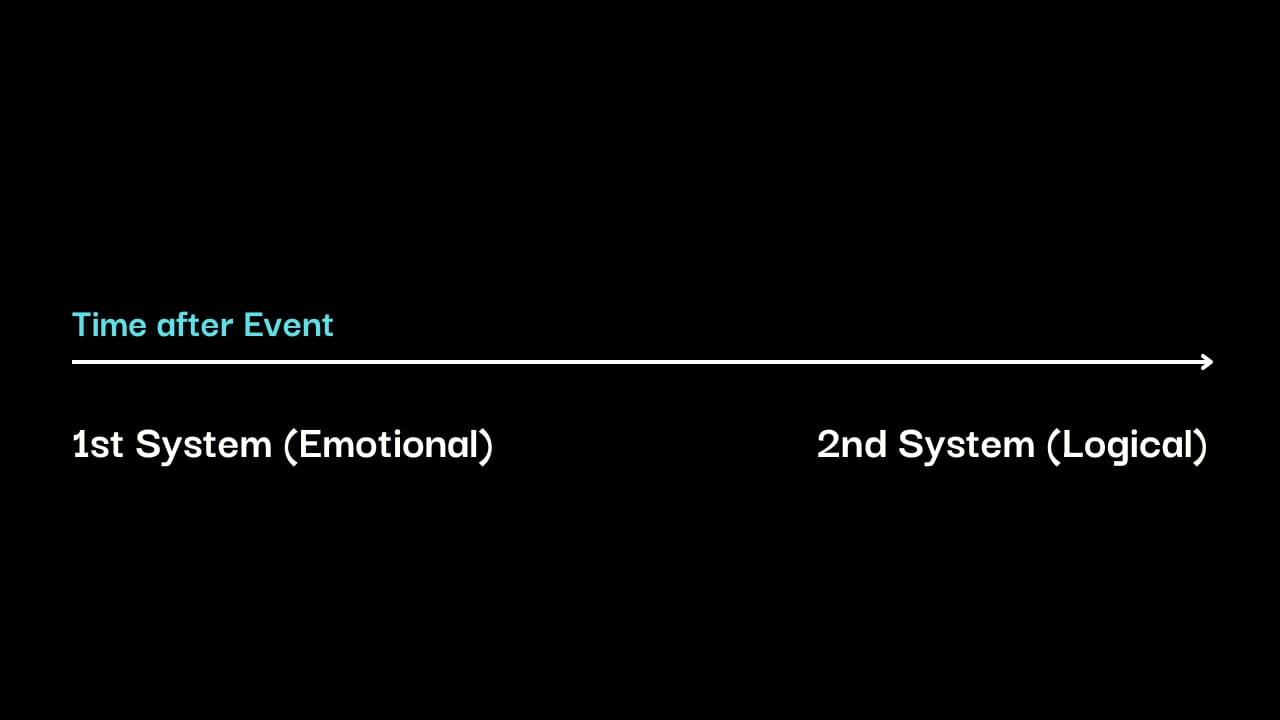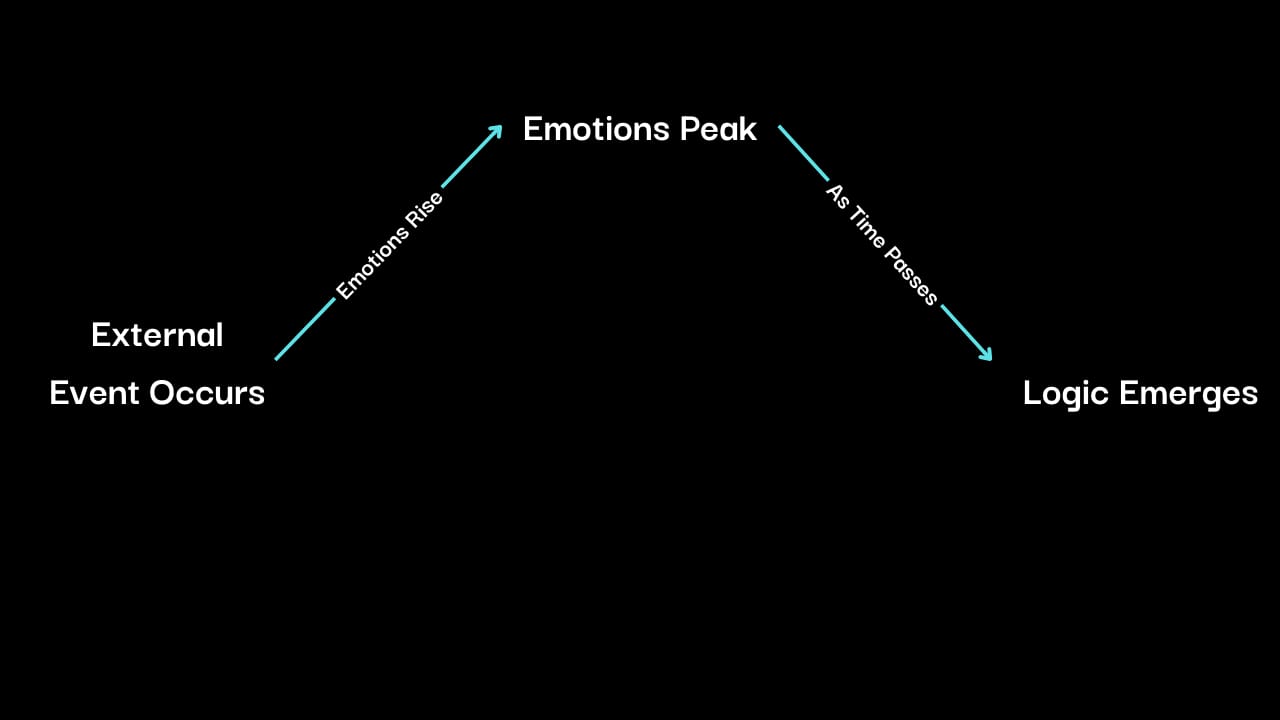- The Mast Letter
- Posts
- Life Doesn't Care How You Feel
Life Doesn't Care How You Feel
The relationship between our emotions and accurate decision making.
There is a direct correlation between our levels of emotions, and the satisfaction with our decision.
Daniel Kahneman—author of Thinking, Fast and Slow— highlights this in his book.

The higher our emotions, the lower our satisfaction with our choices, consequently— the lower our emotions, the happier we are with our decisions.
Thinking Systems 1 and 2
Neurobiologist and psychologist have identified that there are two key systems within the brain:
The first is a system that is immediately triggered by external events
The second is a system that is activated long after external events
That first system is our emotional reaction, it peaks shortly after an event.
Think about a breakup, death of a family member, getting married, or accepted into a school
The periods that follow those major events are filled with heightened emotions— rightfully so they are a big deal.
However, our brains are filled with such intense feelings, it is merely impossible to apply logic and reason regardless of what we are faced with.
Emotions are king during this phase.
Long after the events have passed, the second thinking is activated— our logical reaction. Emotions return to baseline, and our brain is able to clearly apply logic and reason
Reason is king during this phase.

The interesting part is that this is consistent across virtually all life events— even the tiniest ones.
Even something as simple as dropping our coffee spikes our emotional state temporarily, before calming down moments later.
Why Does it Matter?
Knowing these two different systems gives us the power make significantly better decisions.
Here’s a simple framework to outline this:

The key factor in this process is time. The longer we wait to react, the more likely we are to be successful in choosing the best path forward.

Taking this into account, once emotions fade we can assess what the most reasonable response is to the event we experienced.
For example, if we just split our coffee— the most reasonable reaction is acknowledging is happens and we shouldn’t let this affect our day any further.
But if we had a death in the family, we have to acknowledge it will take time to process such a large event, and it is reasonable to be emotional for the foreseeable future.
A trick that I have applied is trying my absolute best to find the smallest change I need to make to accurately react to a situation.
For the coffee example, I just need to forget about it
For the passing example, I most likely need to take it easy to give myself sufficient time to process.
The World Does Not Care About Our Feelings
I used to be a rather emotional person, and never quite understood why life couldn’t give me a break.
But I later realized that life, people, markets, jobs— they all don’t care about your feelings.
We have to learn to carry on and do what needs to be done regardless of how we feel.
Reply